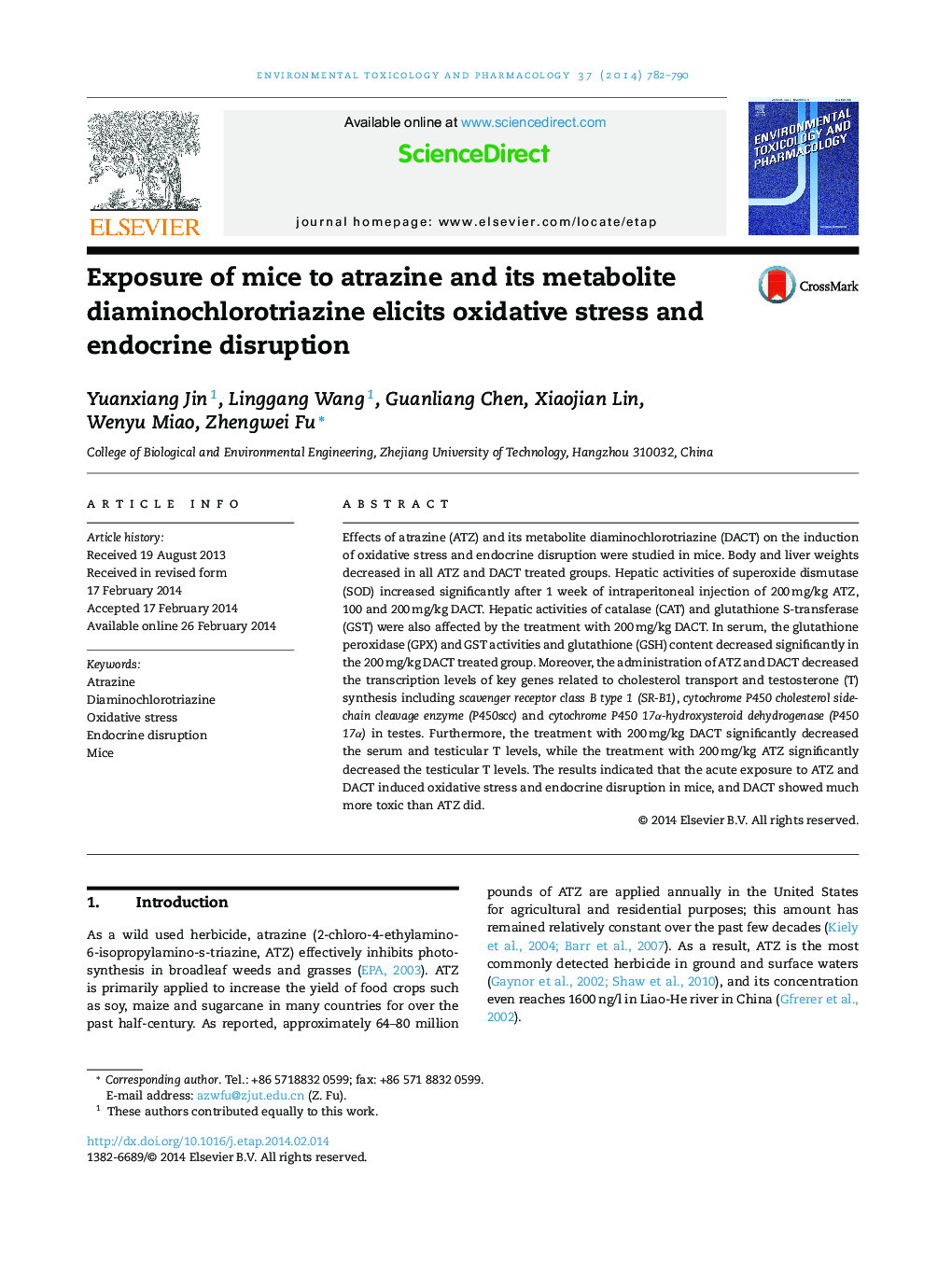| Article ID | Journal | Published Year | Pages | File Type |
|---|---|---|---|---|
| 2583016 | Environmental Toxicology and Pharmacology | 2014 | 9 Pages |
•Oxidative stress and endocrine disruption induced by ATZ and DACT were evaluated in male mice.•ATZ and DACT induce significant changes in antioxidant enzymes activities in the liver and serum.•ATZ and DACT elicit the decrease of the transcription of T synthesis related genes and T levels.•DACT may have the same or more toxic effects than ATZ on the non-target organisms.
Effects of atrazine (ATZ) and its metabolite diaminochlorotriazine (DACT) on the induction of oxidative stress and endocrine disruption were studied in mice. Body and liver weights decreased in all ATZ and DACT treated groups. Hepatic activities of superoxide dismutase (SOD) increased significantly after 1 week of intraperitoneal injection of 200 mg/kg ATZ, 100 and 200 mg/kg DACT. Hepatic activities of catalase (CAT) and glutathione S-transferase (GST) were also affected by the treatment with 200 mg/kg DACT. In serum, the glutathione peroxidase (GPX) and GST activities and glutathione (GSH) content decreased significantly in the 200 mg/kg DACT treated group. Moreover, the administration of ATZ and DACT decreased the transcription levels of key genes related to cholesterol transport and testosterone (T) synthesis including scavenger receptor class B type 1 (SR-B1), cytochrome P450 cholesterol side-chain cleavage enzyme (P450scc) and cytochrome P450 17α-hydroxysteroid dehydrogenase (P450 17α) in testes. Furthermore, the treatment with 200 mg/kg DACT significantly decreased the serum and testicular T levels, while the treatment with 200 mg/kg ATZ significantly decreased the testicular T levels. The results indicated that the acute exposure to ATZ and DACT induced oxidative stress and endocrine disruption in mice, and DACT showed much more toxic than ATZ did.
